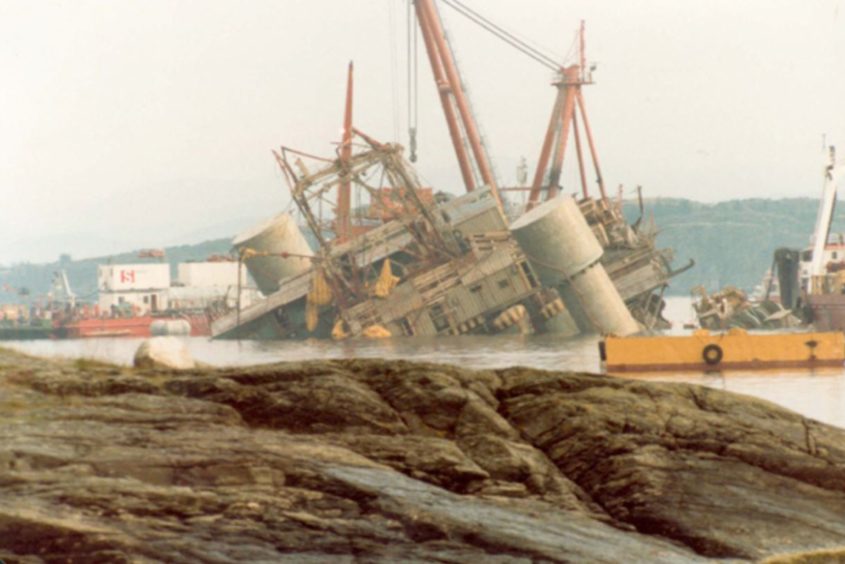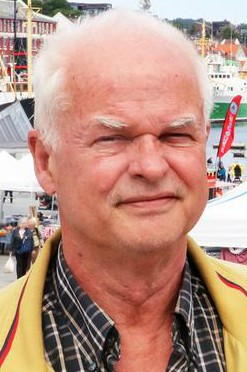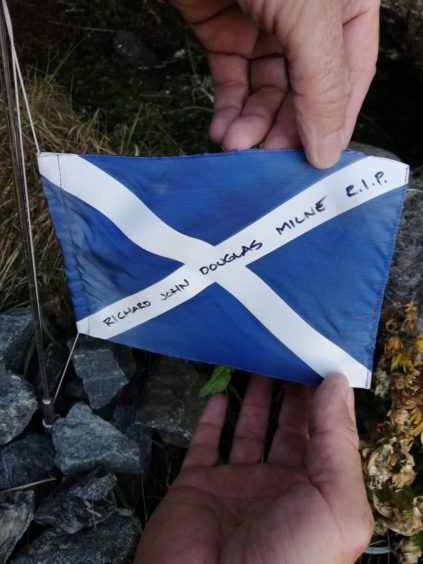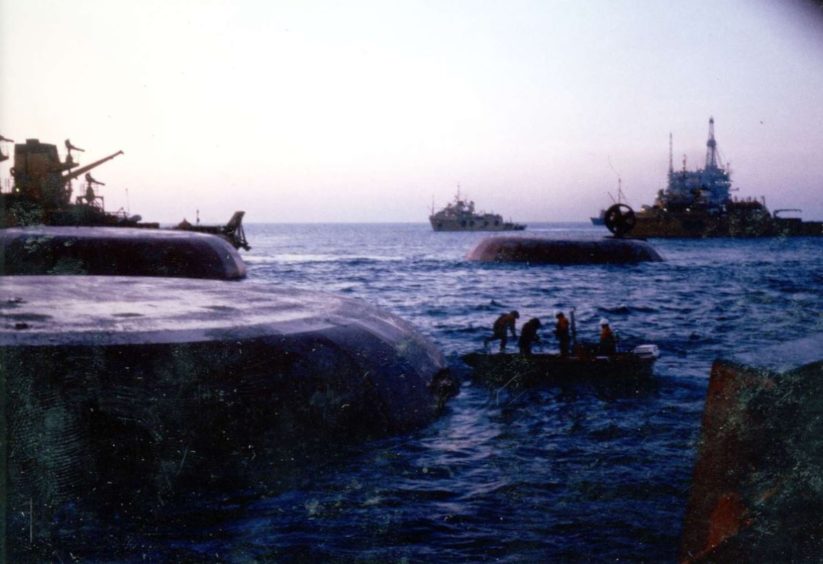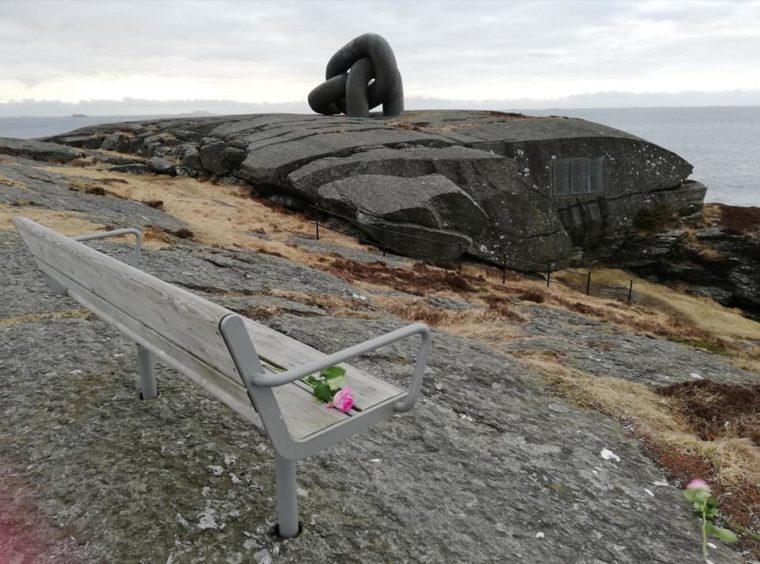
Bereaved families of those killed in the Alexander Kielland disaster have said they won’t have peace unless a fresh inquiry is opened.
Norway’s Office of the Auditor General (OAG) has produced a review of the incident, criticising “weaknesses” in the investigation into the disaster in 1980, but recommended that the Storting, Norway’s parliament, does not open a new inquiry.
Alexander Kielland remains the country’s worst industrial disaster. The capsizing of the rig claimed the lives of 123 people, including more than 20 Brits, one of whom is thought to have been from the Aberdeen area.
The Kielland Network, a group of victims’ relatives and survivors, is now fighting for the Storting not to accept the OAG’s recommendations, citing the high level of public mistrust into the original investigation which, unlike the UK’s Piper Alpha, was a “closed” inquiry.
The Norwegian Commission found in 1981 that a welding fault was the solitary cause, placing the blame effectively on French firm CFEM who constructed the rig at its yard in 1976, rather than operator Phillips or rig owner Stavanger Drilling.
However other factors, such as problems with the anchoring system and an explosion at another bracing, are also viewed as potential contributors to the incident.
Kian Reme, whose brother was killed in the disaster, spearheads the Kielland Network.
He said: “We believe that we have a fair chance in convincing them.
“The main argument for not making a new inquiry would be that everybody needs peace now, we have to find an ending. We’re saying there will be no ending without a new inquiry.
“The mistrust among the bereaved and survivors is very, very high towards the Norwegian Commission investigation.
“If you want peace and quiet in the Kielland case you need to turn over that mistrust and have a process that ends with confidence. That cannot be achieved without a new inquiry.”
Mr Reme said the group’s main goal is finding answers but “every option is on the table” from a legal perspective should a new inquiry not be announced.
Investigation
The Norwegian parliament is expected to give its decision in summer, ahead of an election period in the country, according to the Kielland Network.
Lobbying efforts are underway, Mr Reme said, but conceded there is a risk that politicians will follow the OAG recommendation.
Despite highlighting weaknesses in the original investigation, the OAG said it is “unlikely that a new investigation will be able to produce significant new information about the causes”.
Large parts of technical evidence are missing from the now-scuttled rig, it said, and would be difficult to obtain more reliable information than was done so in 1980.
New information from witnesses would also be “uncertain” 40 years on, it added.
Mr Reme highlighted that strides in technology over that period would allow for more in-depth analysis than four decades ago.
The OAG said this is possible, but maintained such analysis would require use of the sunken platform and that it would be unlikely to lead to a new conclusion.
However, the Auditor General did criticise parts of the original investigation, particularly a lack of assessment of the liability of private companies, as well as the treatment of survivors and the bereaved families, who authorities did not adequately follow-up with in the aftermath.
Mr Reme said the OAG recommendation is “deeply disappointing and very surprising” given its criticism of the original investigation.
UK Families
Kielland Network is seeking government support to help establish stronger links with families of the victims lost in the tragedy.
Two Scots – Richard Milne, 40, from Renfrew and 25-year-old Robbie Morrison, thought to be from the Aberdeen area – perished in the tragedy, alongside 20 Englishmen, a Welshman and an Icelander.
Kielland Network is seeking support from the Norwegian Embassy in London to help reach out to these men’s relatives.
Mr Reme added: “We do have a UK project on our list here. With help of the Norwegian Embassy in London, we’re asking for assistance to be able to get contact information to, hopefully, all of the bereaved of those who died and also the survivors, simply to provide information on what’s going on.”

